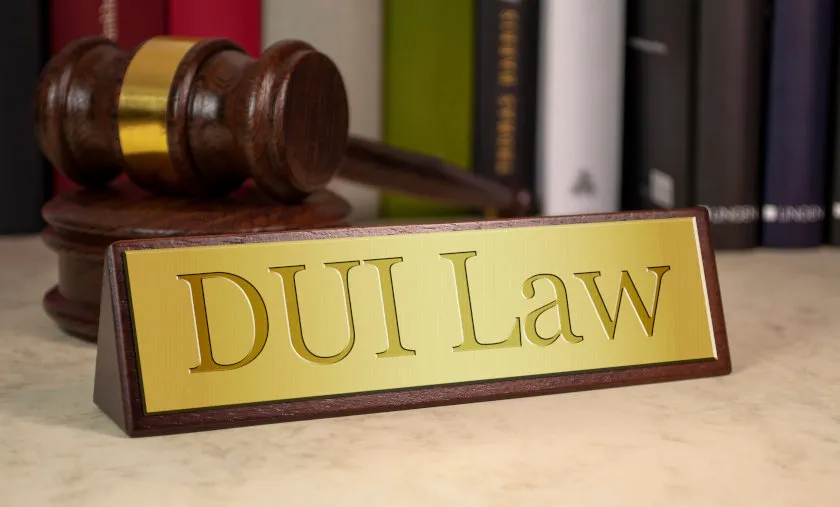
What Are the Penalties for a DUI in California?
Sentencing for a DUI depends on whether injuries occurred, the number of prior convictions within ten years, and how the case is charged. While most first and second DUIs are misdemeanors, aggravating factors can escalate charges and consequences rapidly. Understanding the baseline penalties helps you evaluate plea offers and craft a defense strategy that keeps exposure as low as possible-especially when coordinated with DMV hearing strategy and license reinstatement planning.
Baseline Penalties by Offense Level
The chart below outlines typical sentencing ranges set by California statute and DMV regulations. Courts may add enhancements or alternative sentencing based on the circumstances.
| DUI Offense | Jail / Prison | Fines* | Probation | License Suspension | Ignition Interlock | DUI Program |
|---|---|---|---|---|---|---|
| First DUI | Up to 6 months | $390 - $1,000 | 3 - 5 years | 4 months - 1 year | 6 months | 3 or 9 months |
| Second DUI | 96 hours - 1 year | $390 - $1,000 | 3 - 5 years | Up to 2 years | 1 year | 18 or 30 months |
| Third DUI | Up to 1 year (or 16 months state prison) | $390 - $1,000 | 3 - 5 years | Up to 3 years | 2 years | 30 months |
| Fourth or Subsequent | 16 months - 3 years (state prison) | $390 - $1,000 | 3 - 5 years | Up to 4 years | 3 years | 30 months |
*Penalty assessments often increase the out-of-pocket cost several times beyond the statutory fine.
First-Time DUI
A first DUI conviction generally includes fines from $390 to $1,000 (often tripled by assessments), up to six months in county jail, three to five years of informal probation, and completion of a three- or nine-month DUI school. License suspensions combine DMV and court actions, but restricted licenses and ignition interlock devices can shorten the impact when handled properly. Dive deeper into defenses on our first-offense DUI page.
Second DUI Offense
A second conviction within ten years carries up to one year in county jail, fines approaching $4,000 after assessments, a minimum 18-month DUI education program, and a two-year license suspension (with DMV actions overlapping). Courts often require at least a year of ignition interlock usage to regain driving privileges- see specific mitigation tactics on our second DUI defense resource.
Third DUI Offense
Third offenses can result in up to one year in county jail or 16 months in state prison, with fines pushing $18,000 once assessments are applied. License suspensions extend to three years, with eligibility for a restricted license typically after six months. A 30-month DUI program and two-year interlock requirement are standard. Our multiple-offense DUI guide explains how to fight habitual offender status.
Fourth or Felony DUI
A fourth DUI within ten years is usually filed as a felony. Courts may impose 16 months to three years in state prison, fines up to $5,000 plus assessments, four-year license revocations, and mandatory 30-month DUI programs. Habitual offender designations and inpatient treatment can accompany sentencing as the court seeks to protect the public. Learn how we defend these cases at our felony DUI page.
Aggravating Factors that Increase Penalties
Even a first offense can trigger enhanced punishment when specific facts are present. Prosecutors may add sentencing enhancements for high blood-alcohol levels, refusing chemical tests, having minors in the vehicle, or causing injury. These add-ons can increase custody time or require the installation of an ignition interlock device for longer periods.
- High BAC: Levels above 0.15% or 0.20% demand longer DUI classes and carry stiffer fines. Review tailored strategies on our high BAC DUI page.
- Refusals: Declining a post-arrest breath or blood test triggers a one-year license suspension plus mandatory jail time, even for first offenders. Learn how to challenge refusals in our DMV refusal guide.
- Injuries: Causing bodily harm allows prosecutors to file felony charges or seek additional jail time under Vehicle Code §23558. We outline defense approaches on our DUI with injury page.
- Child passengers: Driving with a minor under 14 adds mandatory jail time under Vehicle Code §23572 and can lead to separate child endangerment charges, often resolved alongside underage DUI issues.
The most effective way to mitigate penalties is to challenge the evidence, negotiate charge reductions, or pursue diversion where available. Our DUI defense team evaluates every angle-from probable cause to breath-test calibration-to put you in the strongest possible position.

